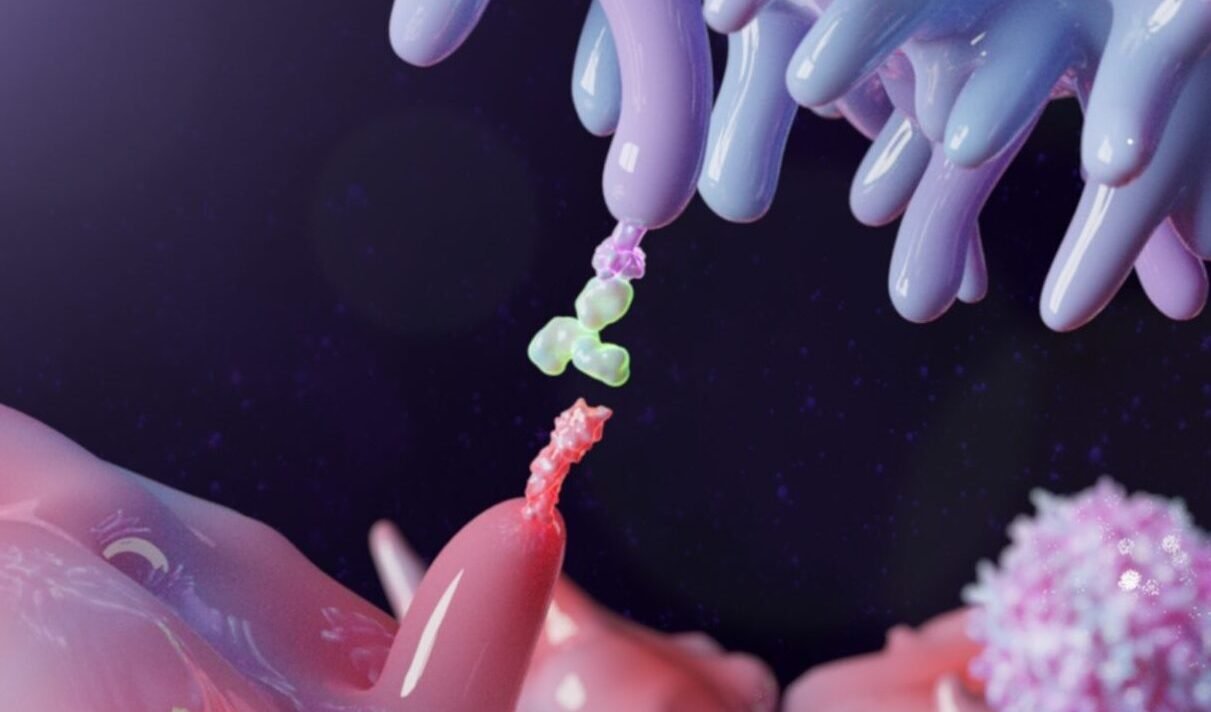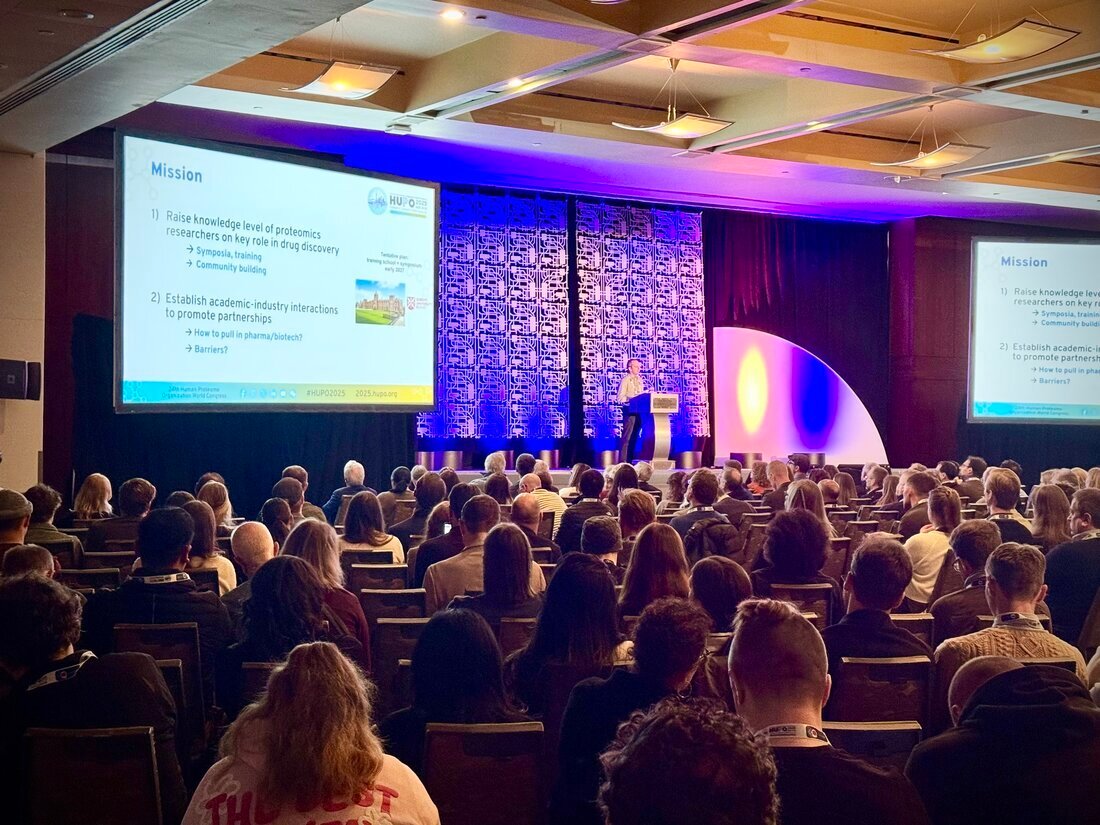A landmark study headed by researchers at Yale School of Medicine and at Fred Hutchinson Cancer Center has revealed that autoantibodies (AAbs)—immune proteins traditionally associated with autoimmune disease—may profoundly influence how cancer patients respond to checkpoint immunotherapy (CPI).
Results from the research, involving humans and mice, could represent a potential breakthrough in solving one of modern-day oncology’s most frustrating mysteries, which is why checkpoint inhibitors work for some patients but not others. The findings could indicate how it may be possible to extend treatment benefits to more people, and suggest that autoantibodies could help reveal cancer’s weak spots and point to new therapeutic targets.
“Our analysis shows that certain naturally occurring autoantibodies can tilt the odds dramatically toward shrinking tumors,” said Aaron Ring, MD, PhD, an associate professor at Fred Hutch Cancer Center. “We saw some cases where autoantibodies boosted a patient’s likelihood of responding to checkpoint blockade by as much as five- to ten-fold.”
Ring is senior author of the team’s published paper in Nature, titled “Humoral determinants of checkpoint immunotherapy,” in which the researchers say their findings “… highlight therapeutically actional pathways that can be exploited to augment immunotherapy.”
Autoantibodies are immune system proteins that recognize the body’s own tissues. They are most associated with their harmful role in driving autoimmune diseases like lupus or rheumatoid arthritis. However, emerging evidence indicates that in some cases, autoantibodies can surprisingly exert health benefits. “Beyond their classical role in driving autoimmunity, self-reactive AAbs have been established to exert profound biological influences on health and disease,” the authors wrote. However, they noted, “… few studies have comprehensively explored the breadth of AAb reactivities at a proteome scale (the ‘AAb reactome’) in patients with cancer.”
“For years, autoantibodies were viewed mainly as bad actors in autoimmune disease, but we’re discovering they can also act as potent, built-in therapeutics,” said Ring, who holds the Anderson Family Endowed Chair for Immunotherapy at Fred Hutch. “My lab is mapping this hidden pharmacology so we can turn these natural molecules into new treatments for cancer and other illnesses.”
For their newly reported study, Ring and collaborators turned to a high-throughput assay, REAP (rapid extracellular antigen profiling), developed by Ring, which can detect AAbs to several thousand human extracellular and secreted proteins simultaneously. The investigators aimed to conduct an AAb-wide association study (AAbWAS) using REAP— which they described as analogous to a genome-wide association study—in patients receiving CPIs. To do this the team used the assay to screen for over 6,000 types of autoantibodies in blood samples from 374 cancer patients with a wide range of tumor types who were receiving either anti-PD1 or anti-PDL1 monotherapy, or dual checkpoint blockade combining anti-PD1 and anti-CTLA4. They in addition screened for the autoantibodies in samples from 131 healthy individuals.
Checkpoint inhibitors have transformed treatment for a wide range of cancers including melanoma and non-small cell lung cancer by unleashing the immune system to see and attack cancer. But not all patients respond to these treatments and, in many cases, their anti-tumor effects are incomplete and do not result in a cure. The researchers hypothesized that patients with cancer may have a range of AAbs that exert treatment-enhancing or treatment-inhibiting effects on CPIs. “Identification of such antibody responses could help to explain clinical heterogeneity in response to immunotherapy but could also highlight key pathways for therapeutic modulation in cancer.”
Using blood samples collected from patients and from healthy individuals, the REAP analyses revealed that in comparison with healthy controls, cancer patients had substantially higher levels of autoantibodies. “Autoantibody signatures in patients treated with CPI strikingly distinguished them from healthy individuals,” they wrote. Importantly, certain autoantibodies were strongly linked to better clinical outcomes, indicating their potential role in enhancing the effectiveness of immunotherapy.
For example, autoantibodies that blocked an interferon family were linked to better anti-tumor effects from checkpoint inhibitors. This finding may support those of other studies showing how too much interferon can exhaust the immune system and then curtail the effects of immunotherapy. “AAbs to the IFN-I family were among the most striking associations with CPI responders, conferring odds ratios of response ranging from approximately 2.1 to 6.7,” the team noted. The only exception was IFNβ, they pointed out. The investigators also tested the effects of blocking IFN-I in two mouse models. “In both models, we observed that the addition of an IFN-I pathway-blocking antibody enhanced the efficacy of combined CPI therapy (anti-PD1 and anti-CTLA4) …” they stated. “In the case of the B16F10 model, which is highly resistant to CPIs, tumor growth inhibition was evident only when IFN-I blockade was present. In the case of CT26, a CPI-responsive model, the addition of IFN-I pathway inhibition resulted in significantly more rapid tumor clearance.”
Ring further explained, “In some patients, their immune system essentially brewed its own companion drug. Their autoantibodies neutralized interferon and that amplified the effect of checkpoint blockade. This finding gives us a clear blueprint for combination therapies that intentionally modulate the interferon pathway for everyone else.”
Not all autoantibodies were beneficial. The team discovered several that were associated with worse outcomes from checkpoint inhibitors, likely because they disrupted critical immune pathways necessary for antitumor responses. Finding ways to eliminate or counteract these detrimental autoantibodies could open another promising avenue for enhancing the effectiveness of immunotherapy.
“This is only the beginning,” Ring said. “We’re now extending the search to other cancers and treatments so we can harness—or bypass—autoantibodies to make immunotherapy work for far more patients.” In their paper the team concluded that their AAbWAS approach also provides insights into potential therapeutic strategies. “AAbs can be conceptualized as natural biologic drugs in that they are human antibodies that target human proteins,” they suggested. “The potential efficacy of intentionally targeting a particular protein can be inferred from the outcomes of patients that naturally harbour AAbs to the same target.”
In addition, the investigators suggested, analysing AAb effects could help point to optimal therapeutic mechanisms, “… offering insights into how targeting specific AAbs might inform treatment strategies.”
They stress that validating the causal effects of Aabs on therapeutic outcomes will need clinical trials, whether the aim is to use change the levels of treatment-inhibiting AABs, or to emulate or improve on the effects of treatment-enhancing Aabs, using targeted treatments.
The post Immunotherapy Response May Be Influenced by Patient’s Own Autoantibodies appeared first on GEN – Genetic Engineering and Biotechnology News.




